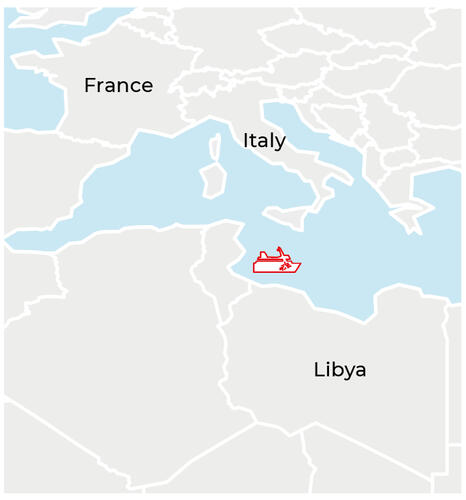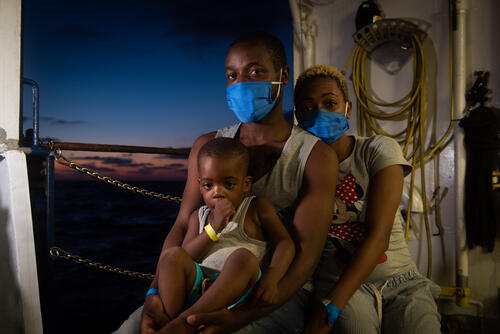
15
15
€2.6 M
2.6M
2015
2015
For thousands of migrants, refugees and asylum seekers who find themselves trapped in Libya along their journey, escaping across the Mediterranean Sea is the only available way out of an endless cycle of violence and abuse. In 2020, the COVID-19 pandemic ─ which prompted the closure of borders and the suspension of resettlement, relocation and repatriation mechanisms ─ further reduced their chances of reaching a place of safety.
Meanwhile, on the other side of the Mediterranean, European states continued to abdicate their responsibilities, while co-opting the Libyan coastguard to police the sea and take people back to extremely unsafe places.
Despite a hostile context, with administrative and procedural roadblocks in Italian ports that significantly reduced the capacity of NGOs to conduct lifesaving missions at sea in 2020, we remained committed to providing medical and humanitarian assistance to people rescued from overcrowded, unseaworthy dinghies.
Until April, an MSF team worked on board the Ocean Viking, in partnership with SOS MEDITERRANEE. In early August, we relaunched operations with our new partner Sea-Watch, on board the Sea-Watch 4, where we managed the clinic, until September, when the ship became the fifth humanitarian rescue vessel grounded by the Italian authorities during the year.
At sea, we treated patients for respiratory infections, hypothermia, dehydration and seasickness. Many also had burns resulting from prolonged contact with fuel and saltwater, or skin infections caused by terrible hygiene conditions in their places of captivity. Some were suffering from the consequences of violent trauma, neglected wounds and sexual violence.
Although most of the people we assisted were originally from African countries, some had travelled from the Middle East or Asia. Some had attempted the crossing numerous times and even survived shipwrecks, only to be intercepted at sea and forced back to Libya by the Libyan coastguard; there, many faced additional atrocities.
In 2020, MSF rescued 1,072 people at sea. Based on what our teams witnessed and experienced first-hand at sea, we denounced the deadly consequences of European migration policies, while tirelessly continuing to advocate a more humane response.




